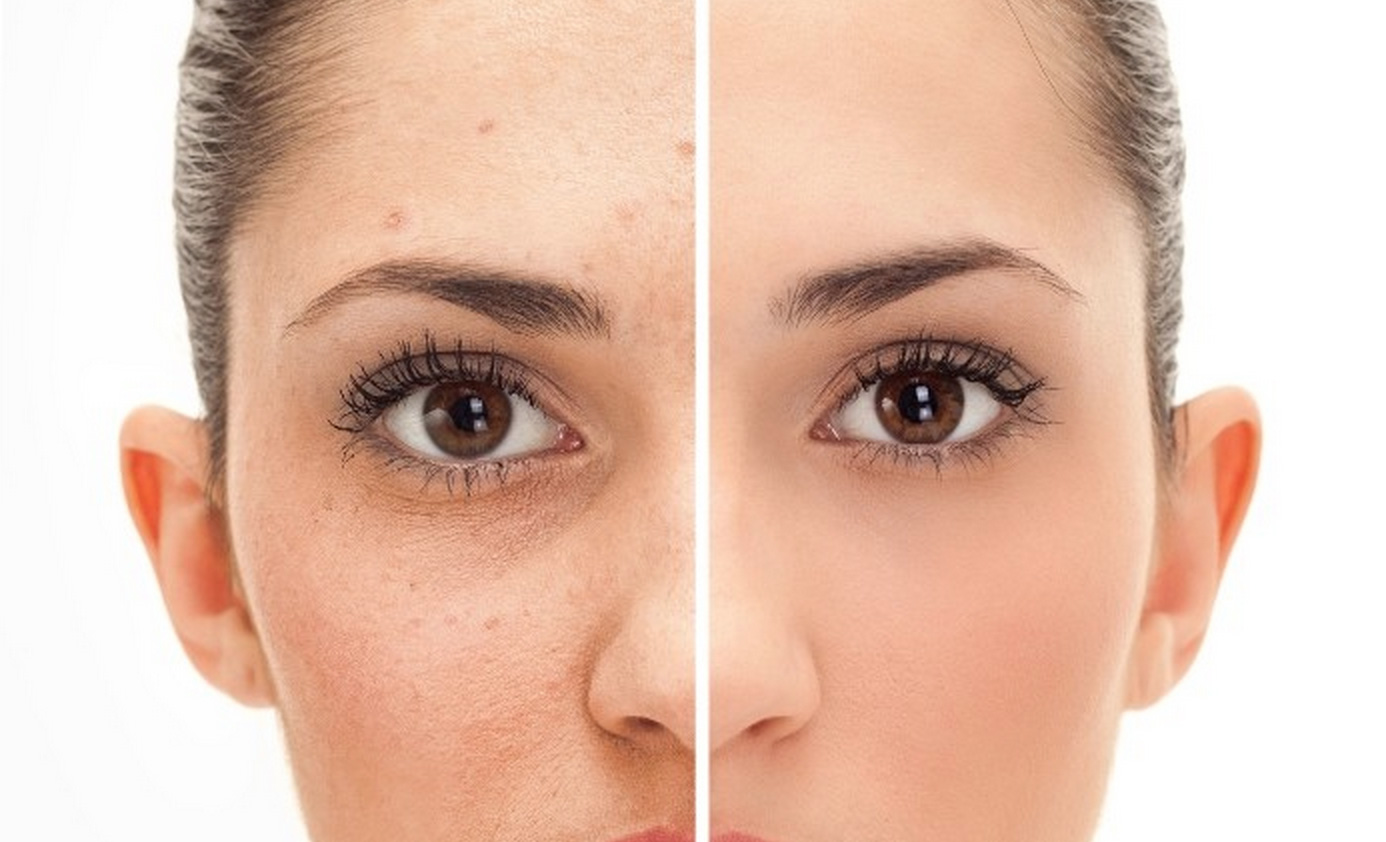Do you struggle with acne? Who doesn’t? We have all faced acne and related issues at one point in time in our lives. According to a report, about 90% of people worldwide suffer from acne. But the problem doesn’t end with acne. It’s the scars that acne almost always leaves behind, which makes it the most debilitating experience. Also, because they rarely seem to go us. But don’t worry, there is hope. In this article, we will explore all possible remedies you can use to heal acne.
But, before talking about treatment, let’s quickly understand a little bit about acne and its types. Acne is caused when the hair follicles under the skin clog up, mostly appearing on the face, neck, back, chest, and shoulders. There is still not a 100% consensus on what causes acne, but some of the common factors found to have triggered acne are:
- Hormonal imbalance during puberty, pregnancy, and menopause
- Certain medical conditions such as PCOS
- Certain medication
- Some skin products
- Hereditary influences
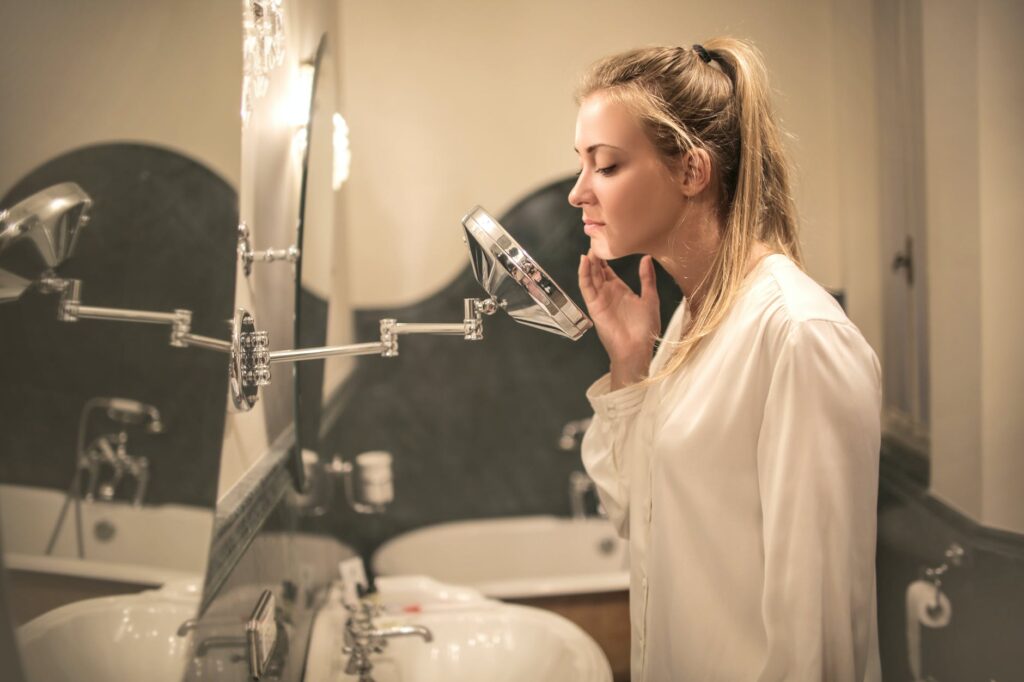
While we have often heard that acne is caused by dirt accumulating because of not washing enough, greasy foods, chocolate, and more, this is far from the truth. It may trigger acne for some people, but it is not found to be universally true.
There are different types of scars, and each takes a different course of treatment. The different types of acne scars are as follows:
- Atrophic scars (flat, shallow depressions)
- Boxcar scars (box-like depressions having sharp edges)
- Ice pick scars (smaller and narrower)
- Rolling scars (uneven marks with sloping edges)
- Hypertrophic or keloid scars (raised lumps of scar tissue)
A Healthy Skin Care Regime
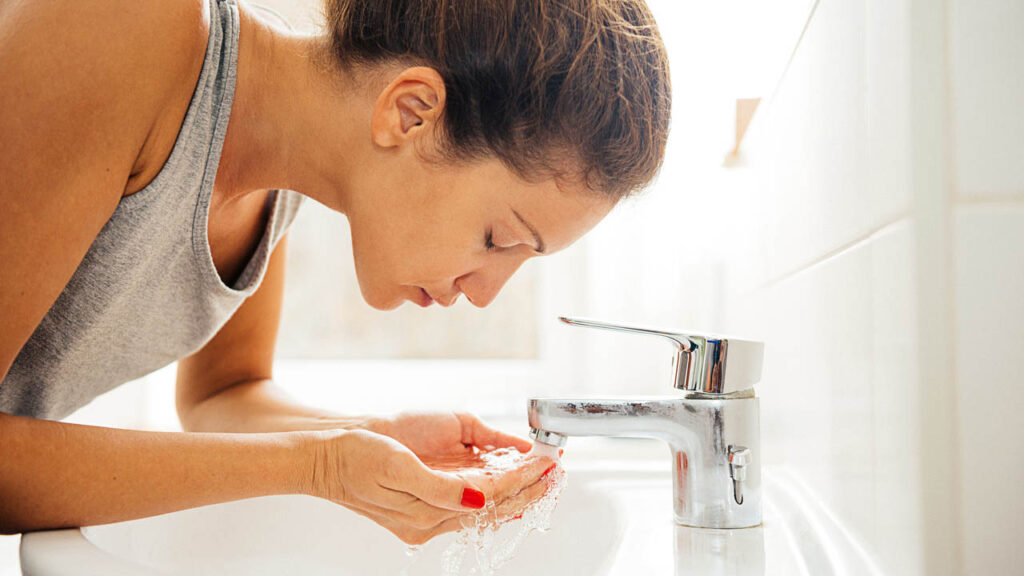
Just like any other condition, a holistic approach helps in dealing with acne also. So, before you start any treatment, ensure that you are following a healthy lifestyle, ensuring that you drink plenty of water, eat a healthy amount of fruits and raw vegetables, exercise regularly to manage stress, and try to get a good 8 hours of restful sleep. Besides this following, a thorough skincare regime is a must when taking care of acne:
- Start using a mild cleanser to clean your face morning and night. Apply an alcohol-free toner after cleansing and finally a light moisturizer.
- Use a toner to open up your pores to enable the skin to absorb products
- Moisturize well twice a day
- Don’t forget sunscreen when stepping out.
- Use the ointment that your physician might have prescribed
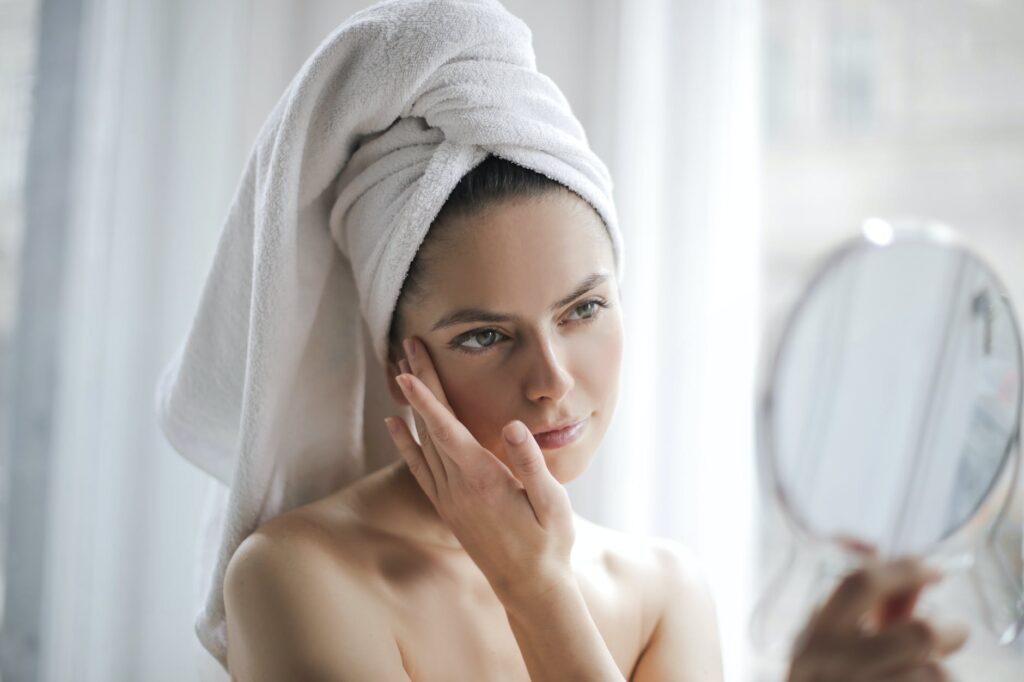
And by all means, do not touch your pimples.
With that understanding, let’s move on to some home remedies that can help you get started with acne treatment. If you have a mild form of acne, the following home remedies might help:
- Apple cider vinegar: Mix 1 spoon of apple cider vinegar and three spoons of water and apply it on the face for 15-20 seconds. Repeat this at least twice a day.
- Honey and cinnamon: Make a honey and cinnamon mask and apply it for 15-20 minutes on the target areas, then wash it off.
- Green Tea: Boil green tea in water and apply it on your skin using cotton regularly.
- Aloe Vera: Moisturize your skin frequently with Aloe Vera.
- Baking Soda: Make a mixture of baking soda with water in the ratio 1:2 and apply it on your skin daily.
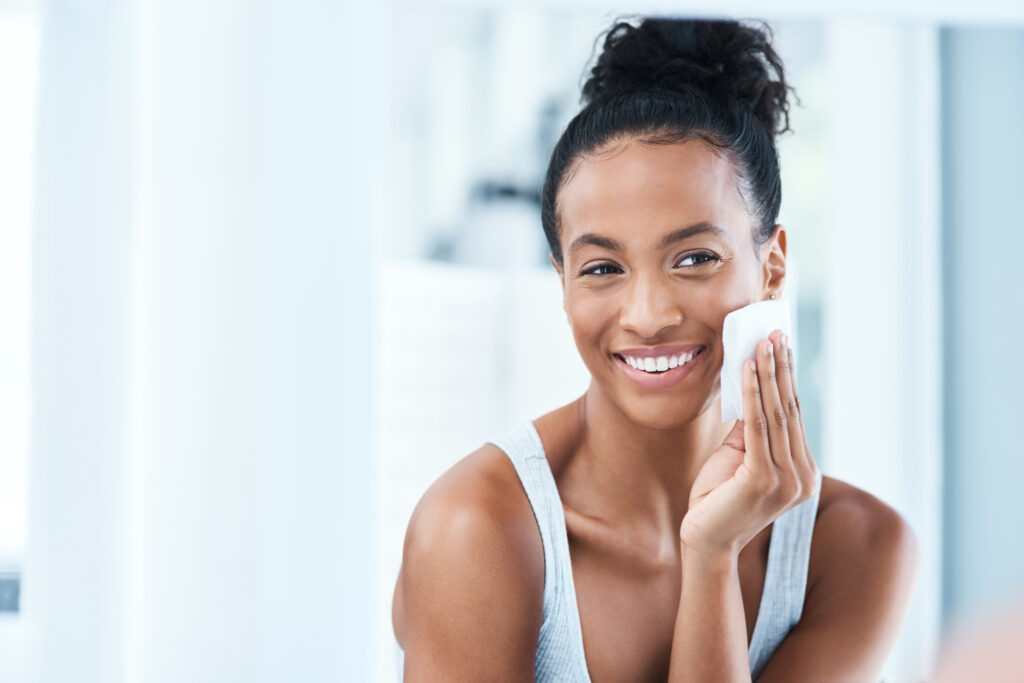
While the above remedies have shown some difference when it comes to healing acne, but they won’t work if you are suffering from medium or deep scars. Unfortunately, there is no quick fix when it comes to acne. Whatever treatment you choose, it will take time.
But because acne is so peculiar, you need to consult an expert dermatologist to ensure you are doing what serves your skin best. All the treatments have a common purpose of promoting collagen growth to heal the skin surface.
But depending upon the type of scars, the modality would have to be changed. Here are some of the popular treatments which have proven to give quick, significant, and longstanding results:
- Topical Creams: These creams are readily available and positively promote collagen growth but over a long-drawn period.
- Injections: Specialize drugs are injected to soften the raised scars and flatten them eventually.
- Subcision: It is a minor surgical procedure used for treating depressed cutaneous scars and wrinkles. In this procedure, the adhesions under the tethered scars are released using tiny needles under local anesthesia.
- Chemical peel: These peels help exfoliate the affected layers to promote collagen production and thereby removing blemishes. This is most helpful for ice pick scars.
- Dermal fillers: This procedure injects hyaluronic acid in the deeper layers of the skin to improve collagen production and makes the scar less noticeable.
- Microneedling: Also, known as derma-rolling, it uses small needles to roll in medication in the deeper layers of the skin, which helps to rebuild deeper layers of the skin, reduces the size of the pore, and eventually helps in skin tightening. This procedure needs to be repeated a few times over several months to eliminate the scar.
- Laser skin resurfacing: This procedure uses carbon dioxide and erbium lasers to heal damaged skin cells at the surface level. This helps in collagen production to help heal. While the micro-needling treatment might give a little discomfort, there is no discomfort after the laser treatment. The tiny scabs or redness goes away the next day.
- Dermabrasion: This procedure uses a hyaluronic filler injection to make the appearance of the scars smaller. It is also an effective treatment making use of a wired brush to exfoliate the skin, thus removing most spots and making others less noticeable.
- Cryotherapy: This therapy uses liquid nitrogen to freeze the scar tissue, which in turn reduces redness and promotes flattening it.
- Surgery: Last but not least, surgery can also opt for more severe scars. Of course, for most spots, this is not needed unless the fault is on a join, thereby restricting movement.
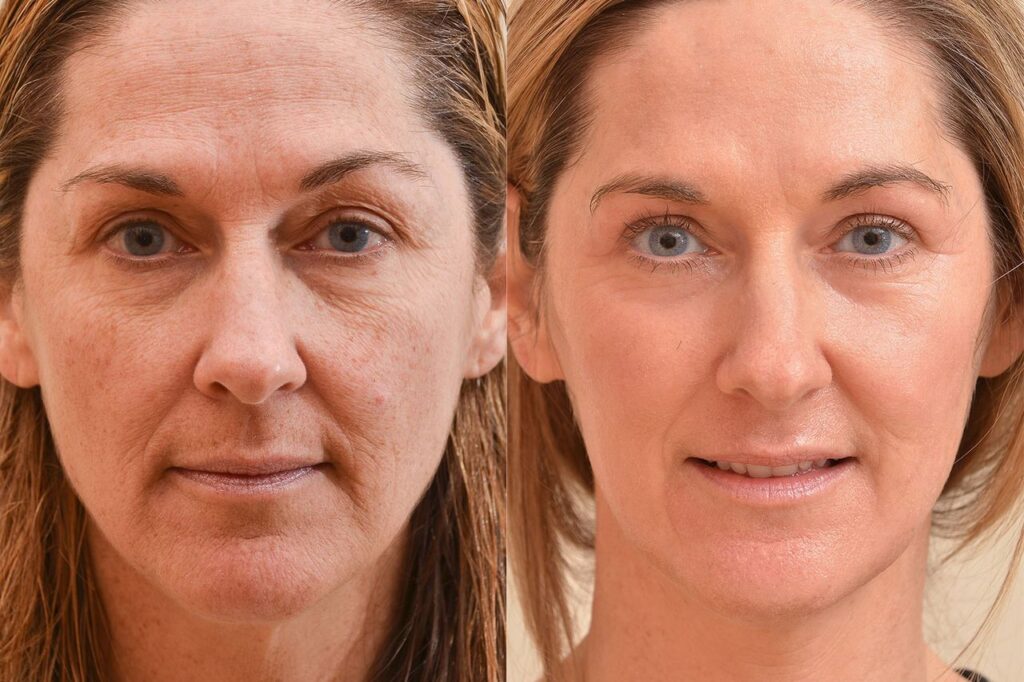
All the above treatments take time to show desired results, but if you stick to the treatment and follow all the pre and post guidelines shared by the dermatologist, you are sure to find relief. My only suggestion would be to not go to any local clinic but consult an expert dermatologist at a renowned clinic such as Oliva Skin and Hair Clinic.
They have a team of expert dermatologists working on cosmetology and dermatology and it has been awarded #1 Skin and Hair Clinic by the Times of India. An expert will be able to guide you towards an appropriate treatment that suits your skin and acne type.
Glowing and healthy skin takes work, and sometimes you need an expert to help you walk the way. Don’t shy away from seeking help when needed—wishing you all a healthy and glowing skin.
